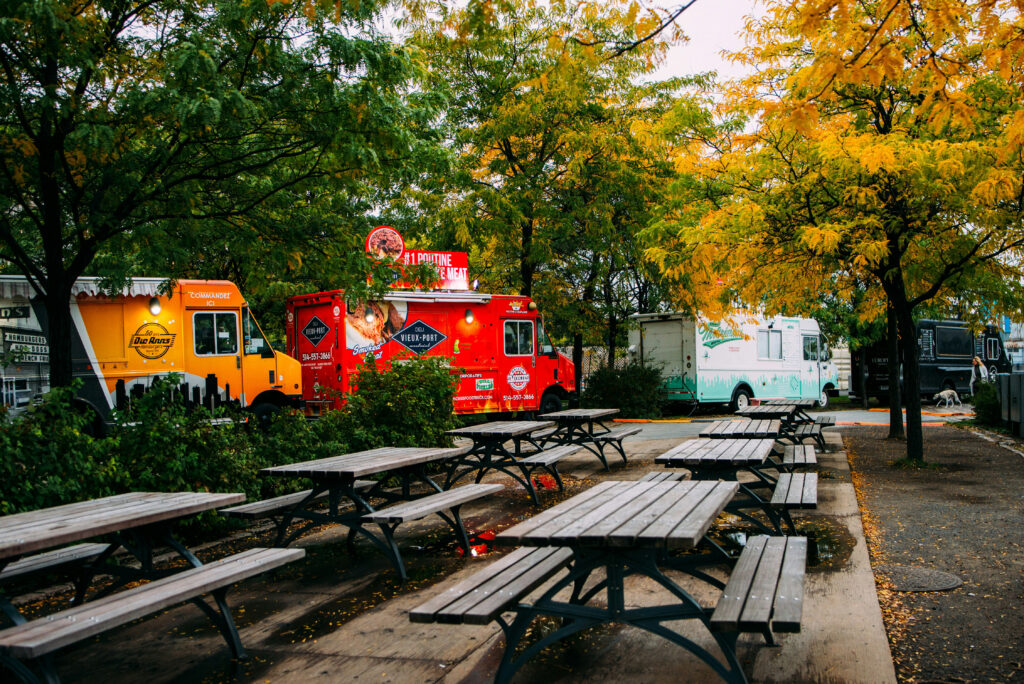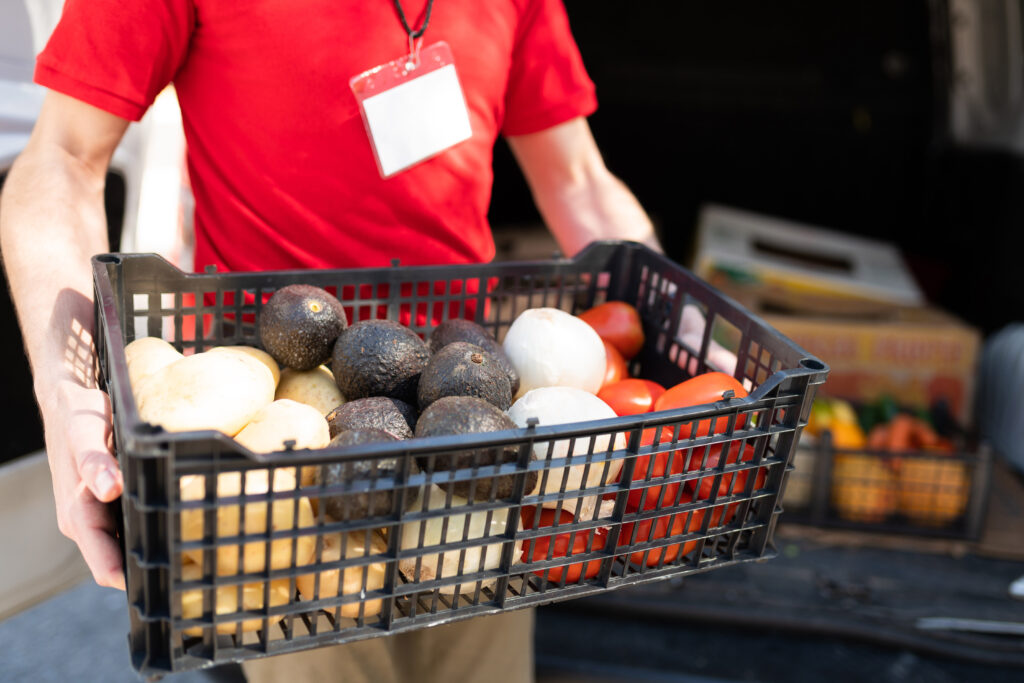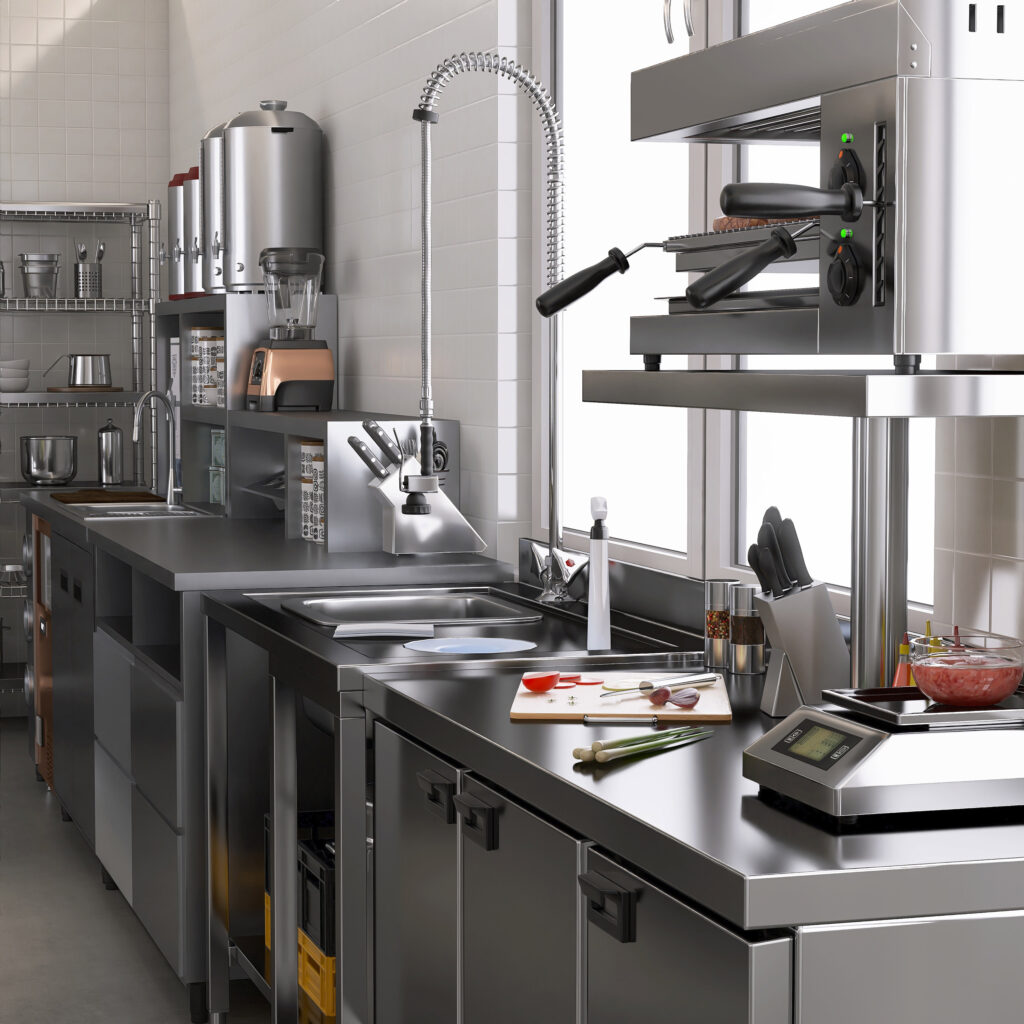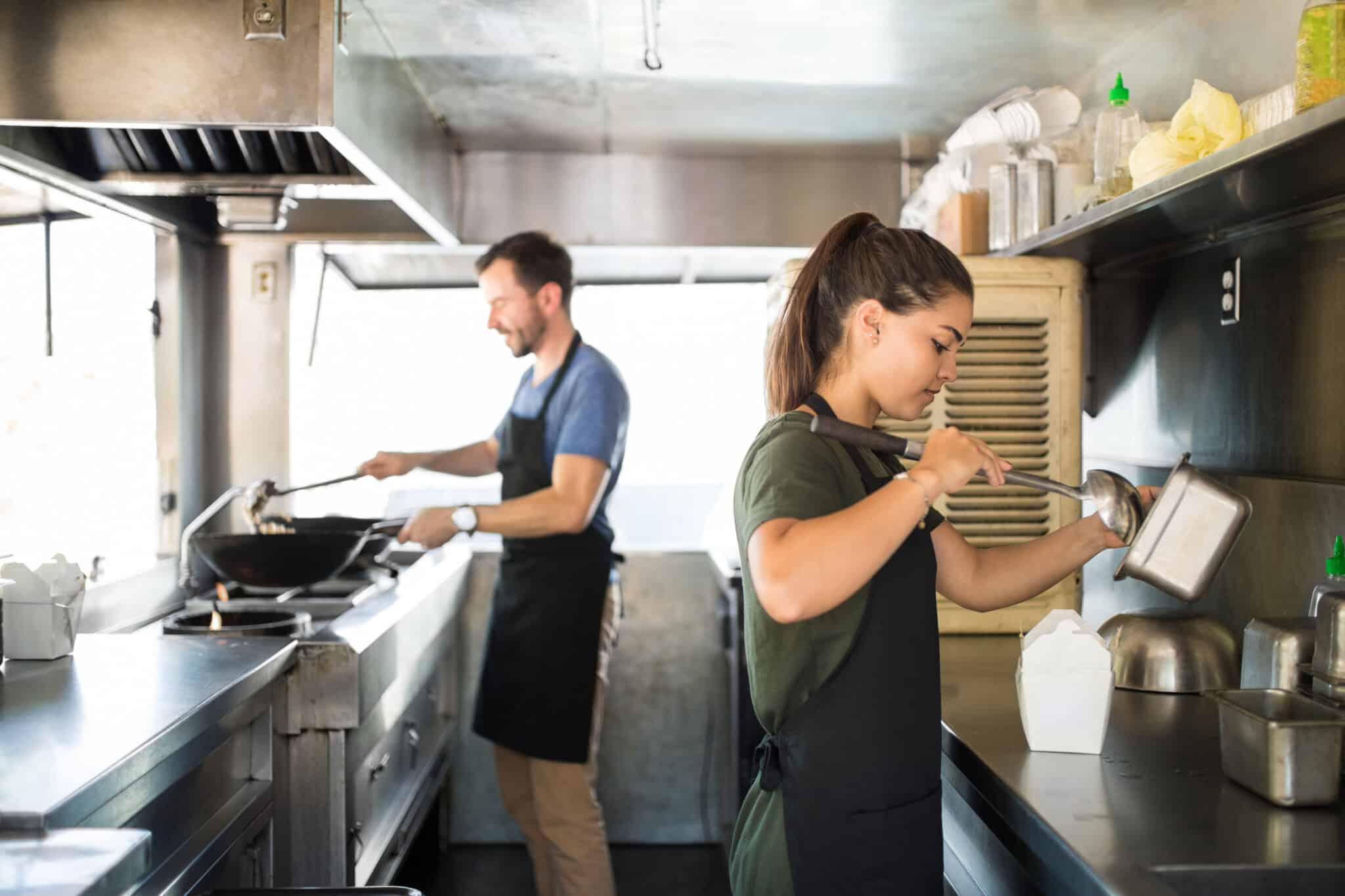Quick Facts About Food Truck Commissaries & Agreements

How to Store and Supply Your Food Truck
Food trucks are everywhere. By every sidewalk packed with foot traffic and in the parking lot of every bar without a food menu, there’s a food truck or three waiting to serve you some deliciousness. But how do those trucks serve so much food?
It’s a good question—most trucks are way too small to hold the smokers slow-cooking that pulled pork or ovens baking those racks of fresh bread. There’s a simple answer: behind every mobile kitchen, there’s a home base keeping it stocked and fueled up for service.
In the last article of our series on starting a food truck, we shared everything you need to know to launch your business. This time, we’ve got one more critical topic to cover before you can get on the road and feeding your hungry customers:
You need to set up a commissary.
What is a Food Truck Commissary?
Simply put, a commissary is the base camp of your truck. It’s where you’ll park your truck overnight, fill it up with water, charge your generators, and store your ingredients and larger food prep and refrigeration equipment.

Commissaries come in all shapes and sizes—every time you’ve seen a food truck parked outside of a brick-and-mortar restaurant or huddled together in large parking lot, you can bet those places are acting as commissaries.
Before diving into the different types of commissaries out there in the world and trying to find one in your neighborhood, it’s important to first understand the basics of what a commissary can provide.
Let’s break down all the services you’ll need from your commissary:
Water
Loading your water tanks with fresh water every day is essential, but so is dumping your waste water, which is often called gray water, at the end of your shift.

Pretty much any commissary is going to let you dump gray water, but some free locations might not include potable water refills. Used water isn’t the only thing you’ll have to think about properly dumping, either—check if a commissary also recycles grease and oil if those are part of your food service.
Fuel
Fuel in food truck terms means more than just gas station services. Fuel here not only involves keeping your truck operating as a vehicle, but also everything that’s needed to keep your equipment running.

A robust, full-service commissary will allow you to change your oil—both the kind in your fryer and the kind under your truck hood—and clean your truck. It will also give you power connections to charge all your electric equipment (generators and batteries), empty your trash and recycling bins, and refill your propane tanks.
Storage
Even a mobile food service needs somewhere to park at the end of the day. From storing your truck to storing your food, a commissary is where you’ll turn.

You’ll start every workday at the commissary. From there, you can prep, store, and transport your ingredients onto your truck. Even though most mobile services aim to sell out of each menu item before their day is through, your commissary can help you take advantage of bulk discounts or bulk prep time.
How to Find a Commissary
Now that you have a general overview of what your food truck commissary may provide, it’s time to figure out what your food service really needs.
Do you need ice daily? Overnight refrigeration? Prep space? Waste disposal?

Arm yourself with your list of must-haves, those service needs you can’t accomplish from inside your food truck, and start searching. The Kitchen Door is a wonderful resource to start your search—they list services like commissaries and ghost kitchens in every state and every city in the U.S.
Once you determine your needs, contact some potential fits—they’ll walk you through some state and local health requirements for commissaries and likely address a number of the following questions.
List of Questions for Your Commissary
- Am I required to store my truck at a licensed commissary, or can any restaurant act as my commissary?
- Does my food truck need to operate in the same county as my commissary?
- Can I dump gray water here, and can I fill up on fresh water here?
- Do you provide outdoor electricity for overnight parking?
- Do you provide ice to your food trucks, or can I purchase my own ice machine and use it in your commissary?
- How much indoor storage space would I have reserved for my business needs?
Types of Commissaries
Across the wide range of food services out there, food trucks stand alone in terms of unique menus and unique service needs. Unique setups require adaptable commissaries—the perfect home base for your service might not work for another operation with a similar menu.
There are three basic types of commissaries out there. Depending on the anticipated needs of your new company and the amount of upstart cash you have in your bank account, one type may fit better than another.
Let’s jump into these types to help you shop around and find the best for your situation right now. If your truck is an overnight sensation and your needs change, don’t worry. Switching up your commissary is a lot easier than switching out your truck or your equipment.
Dedicated Commissary
The traditional, dedicated food truck commissary space operates a bit like any other commercial truck stop—it’s a place for you to legally park your truck and get some of the supplies covered above. While the services these stops provide for food trucks may vary, one common perk is the number of other truck operators you’ll meet here.

Engaging with other food trucks is key to learning the business as quickly as possible, and it can help speed through the learning curve of operating in your area. You’ll hear where the local foot traffic will be that day, see how others are balancing pricing or supply challenges, and find partners that can accent your business.
Rather than take away business from one another, multiple food trucks in one spot tends to multiply profits as customers make visiting your trucks events unto themselves. A dedicated commissary can be your chance to find some amazing partners to grow with.
Commercial Kitchen
In some counties, any retail location certified by a local food inspector can double as a food truck commissary. If you’re lucky enough to have this option available, this means you can partner with brick-and-mortar businesses that your brand can mesh with. Your coffee truck can park outside of a bakery; your barbecue truck can set up in the parking lot of a brewery.

Like dedicated commissaries, commercial kitchens are all about partnerships. With the right partner, you can have a guaranteed spot with regularly expected customer traffic—an amazing foundation for any food service.
Selling food near your commercial kitchen-based commissary also changes how you’ll think about equipment and supplies for your truck. With your home base so close, you might save some prep time and save money on things like refrigeration on your truck.
Non-Profit Spaces
It might not be the most obvious choice, but think about it—if a local food bank or church is already zoned for food service and passes safety inspections, why not consider it for a commissary agreement?

Non-profit centers are all about giving back to the community. If you’re new to the industry and struggling to find your niche, collaborating with non-profit functions such as after-church dinners or catering events to help the disadvantaged gives your business some exposure and a level of public admiration that no amount of money or marketing initiatives could ever buy.
An interesting x-factor unique to non-profit spaces is the chance to use the commissary free of charge. In exchange for your catering contributions to their events, you might get to use their space without exchanging a dime. Before signing a contract with a more expensive commissary, it may be worth giving your local non-profits a call.

Build Your Community
Whether you find an established commercial kitchen to work as your partner or if you find a dedicated commissary that can link you up with fellow food truck owners, it’s important that you tie your food service to local communities. You already know that your food truck will establish a loyal customer community, but your relationship with others in the foodservice game can be just as important.
A commissary can introduce you to veterans in your industry—folks that have run a food truck through all the turmoil of the past several years and are still successfully in business. It can be the meeting place for you to discuss local hot spots to sell that day, or it can be a place to recruit a partner or two and make a new hot spot of your own.
Unless their menu is exactly the same as yours, those fellow food purveyors aren’t your competition. There’s enough hungry mouths out there for all of us, so partner up and together you’ll cover every option a customer could want.
